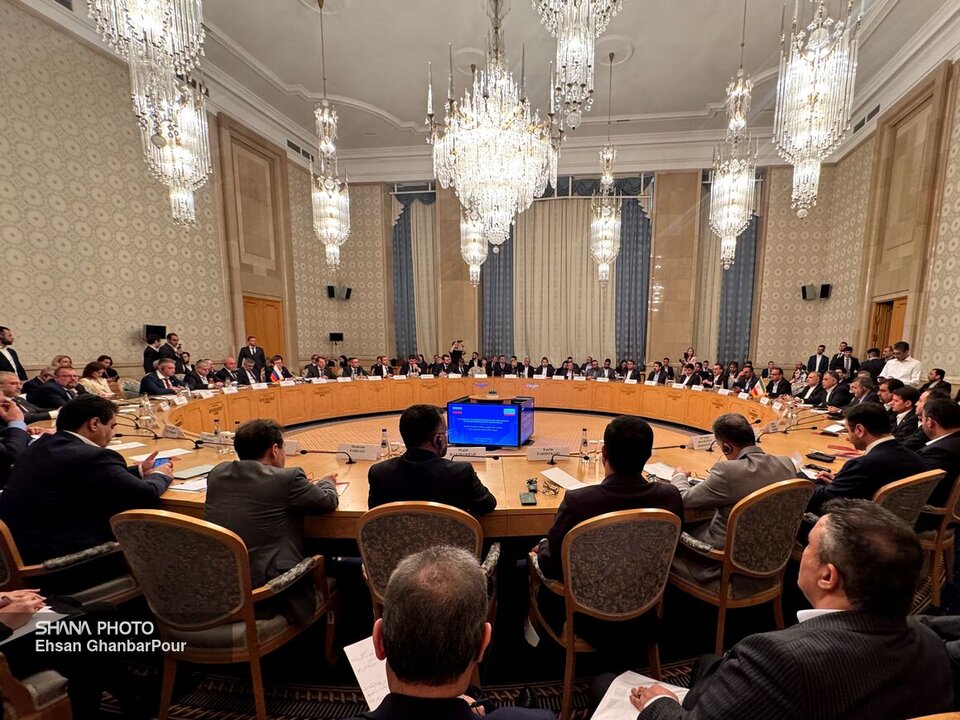Mohsen Paknejad said Friday at the closing session of the 18th Iran-Russia Joint Economic Cooperation Commission: "I hope the signing of cooperation documents and bilateral agreements will yield tangible and effective results for the people of both nations."
He thanked the Russian government, particularly its energy minister, for their warm hospitality and expressed satisfaction with the growth of bilateral and multilateral cooperation between Iran and Russia.
Paknejad noted that given the strong commitment of both countries' senior officials, economic, political and strategic cooperation continues to expand. He added that their membership in organizations such as the Shanghai Cooperation Organization, BRICS, OPEC+ and the Gas Exporting Countries Forum provides a platform to strengthen shared interests and promote regional and international stability.
Iran-Russia deal to accelerate regional cooperation, trade
Referring to the strategic partnership agreement signed in January 2025, the oil minister described it as a strong framework for long-term relations. "This agreement facilitates deeper cooperation in energy, economy, science, culture and media," he said.
Despite significant growth in trade relations in recent years, Paknejad acknowledged that current levels still fall short of set targets and real potential. He said the approval of a free trade agreement between Iran and the Eurasian Economic Union by Iran’s parliament will provide a golden opportunity to boost trade, particularly with Russia, starting May 15, 2025.
Emphasizing the Oil Ministry’s role in the joint commission, he pledged full support for comprehensive cooperation with Iranian and Russian institutions and companies.
Oil, economic agreements mark major step in Tehran-Moscow ties
Paknejad outlined key areas of cooperation, including:
- Developing oil and gas fields and accelerating talks with Gazprom
- Establishing a gas hub in Iran and expanding gas and petroleum product trade
- Advancing joint projects in peaceful nuclear energy
- Developing the International North-South Transport Corridor, with emphasis on completing the Rasht-Astara railway
- Expanding banking cooperation through an independent payment system
- Harmonizing standards, boosting trade centers, and enhancing collaboration in agriculture, health and customs
He noted that the text of a bilateral economic cooperation memorandum was finalized during the meeting, expressing hope that the signed agreements would bring concrete benefits to both nations.
"The Oil Ministry will use all available resources to follow through on these agreements, but their full implementation requires continuous monitoring and removing operational obstacles," he said.
Paknejad thanked Russia for its hospitality and expressed hope that the meeting would mark a major step toward stronger Tehran-Moscow relations.


Your Comment